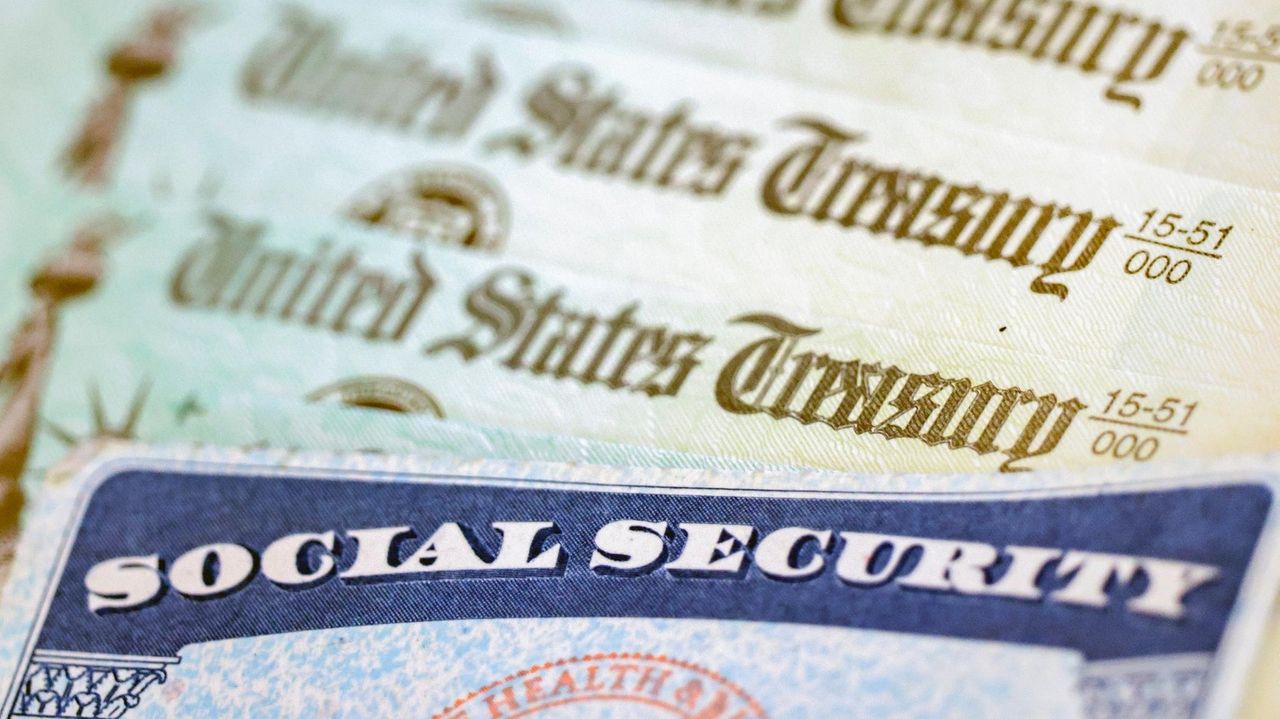As the deadline to end the use of paper checks for Social Security payments looms, Long Island seniors and others who receive federal government benefits must be prepared to make the switch to electronic payments.
On Sept. 30, the federal government will stop issuing paper checks to Americans nationwide who receive Social Security payments, and transition to the use of electronic direct deposit payments, the White House announced in March. The move, which impacts all federal benefit payments, including from the IRS and the Department of Veterans Affairs, is meant to cut costs and increase security, according to the Social Security Administration.
To date, roughly 590,000 Social Security recipients, or 0.8% of all beneficiaries, still receive payments by check, according to the agency.
“Where a beneficiary has no other means to receive payment, we will continue to issue paper checks,” an agency spokesperson said in an email.
Some residents like Richard Hite, 78, a retired accountant living in Islip, said he worries about older Islanders in his circles.
“We know a few people who don’t have a computer,” said Hite, whose wife works as an accountant handling estates and trusts.
While Hite prefers to pay bills through check, he already receives his Social Security check through direct deposit, though he admits he is not a fan of electronic payment methods or giving out his bank information online.
“The idea of putting my account information out there where people can grab it, it bothers me,” he said.
Richard Himelfarb, a Hofstra professor and expert on the politics of Social Security, said the move from checks marks the end of an era.
“The first recipient of Social Security was a woman named Ida May Fuller, who received the first Social Security check on Jan. 31, 1940, for $22.54,” Himelfarb said.
“Here we are in 2025, and paper is finally going away completely. Life moves on,” he said.
Here are seven things to know about the change from paper checks.
Which programs will stop sending paper checks?
Essentially all federal payments, whether they come from the Social Security Administration, the Department of Veterans Affairs or the IRS, will be moving away from paper checks, according to the U.S. Treasury.
However, when it comes to the VA, federal law mandates that recipients who want paper checks can continue to receive them, Pete Kasperowicz, press secretary for the VA, said in an email.
What electronic payment options are available for seniors?
For those who still receive paper checks, they have two primary options, according to the SSA.
Recipients can receive their payments electronically through direct deposit, which sends funds directly to a bank or credit union account, or they can receive payments via a prepaid debit card called a Direct Express card.
How can you enroll in an electronic payment?
To make the switch from paper to electronic payments, recipients can:
Call the Treasury’s Electronic Payment Solution Center at 800-333-1795 and provide the necessary bank account information.Visit their bank or credit union in person and request the change to direct deposit.Call the Social Security Administration directly at 800-772-1213 and request the change.Visit the Treasury’s Go Direct website, which allows visitors to change their payment options online.Fill out a FS Form 1200 and mail it to the Treasury’s Go Direct Processing Center in Dallas, Texas.What if you don’t have a bank account?
For those without a bank account, the Treasury’s Direct Express debit card will be loaded with monthly payments, according to SSA.
Additionally, those who would like to open a bank account can visit the Federal Deposit Insurance Corporation (FDIC) website to identify banks in their area.
Will SSA make any waivers available for those with hardships?
Beneficiaries can request a waiver from the Treasury by calling 855-290-1545, or by downloading and mailing the waiver to the Treasury’s Electronic Payment Solution Center.
The address is:
U.S. Treasury Electronic Payment Solution Center
U.S. Department of the Treasury
P.O. Box 650527
Dallas, TX 75265-0527
Exemptions may be granted to individuals on a case-by-case basis.
What happens if you miss the deadline?
The SSA said recipients should make the change to direct deposit or debit card in order to get “timely” payments.
How can you get help?
To get assistance switching to direct deposit or a Direct Express debit card, call the Social Security Administration at 800-772-1213, or call the Treasury’s Electronic Payment Solution Center at 800-333-1795.

